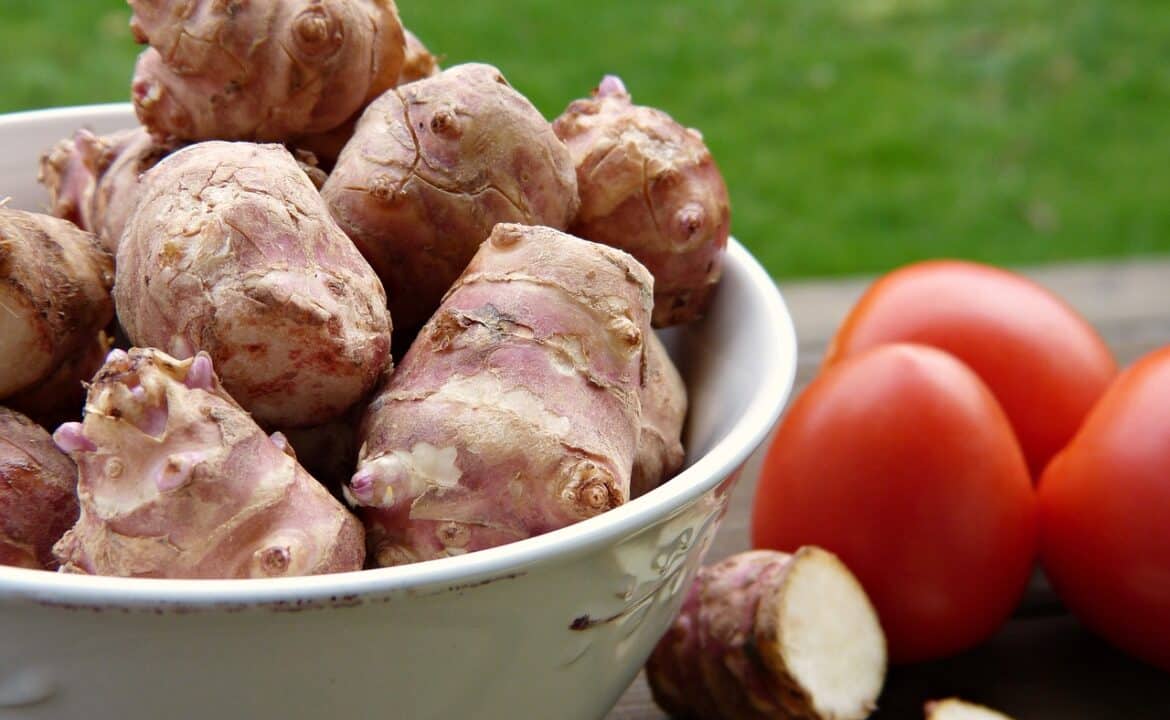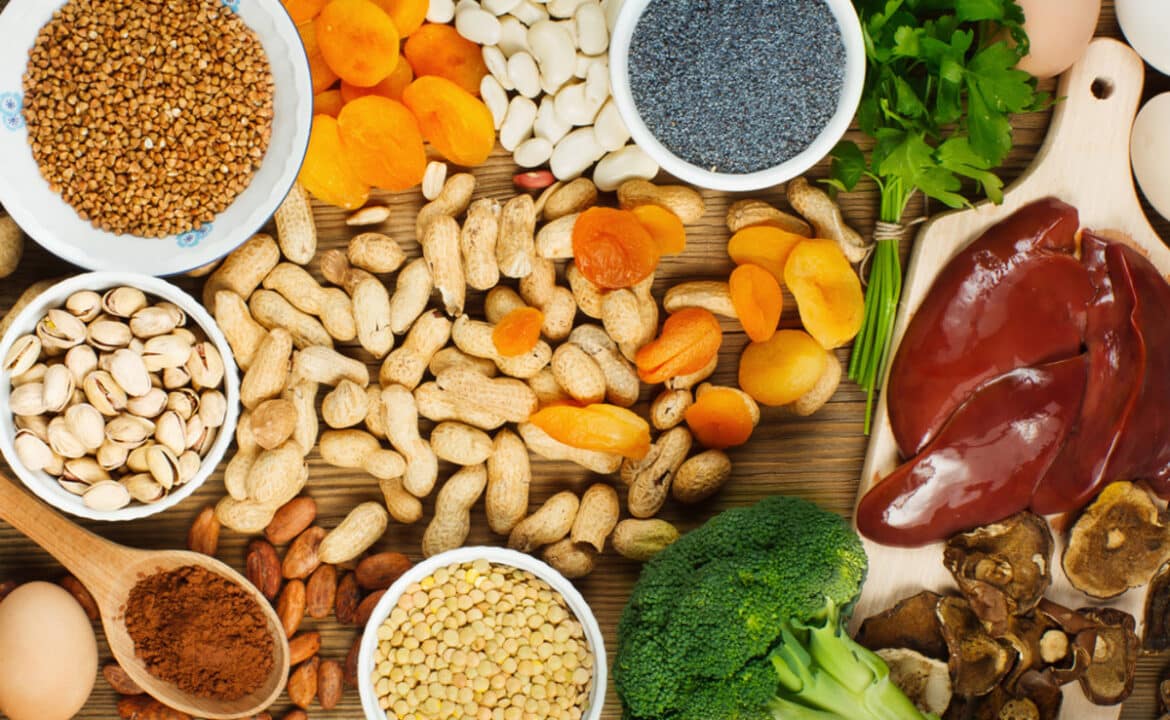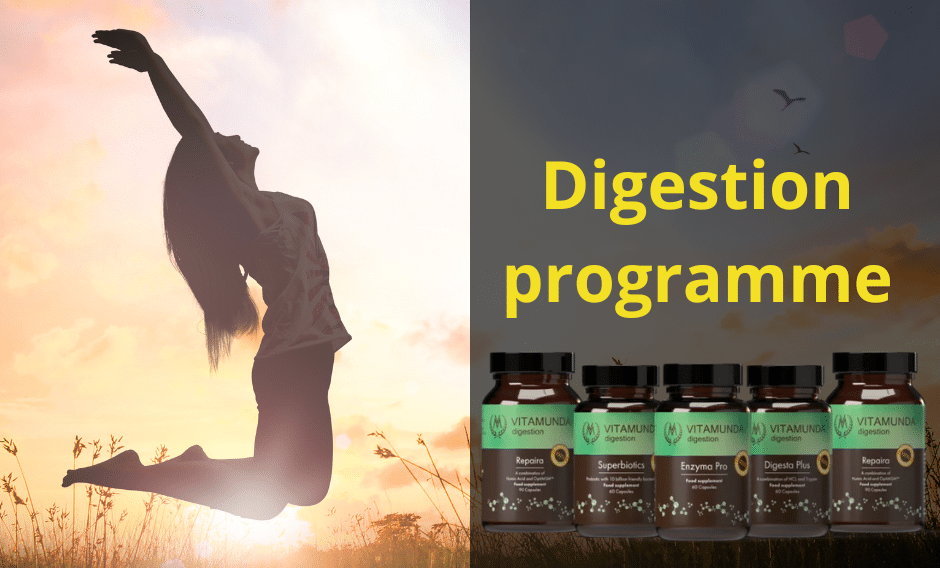How To Ease Anxiety
Anxiety is related to the stress response, a feeling of worry, nervousness or unease about something with an uncertain outcome. Occasional anxiety is a normal part of life, for example worry of money and health but when anxiety takes over your daily life it can interfere with work, family and relationships.
Real or perceived danger causes a rush of adrenaline, a chemical and hormone messenger in the brain, which in turn triggers these anxiety reactions in a process called fight -or-flight response. Physical signs, such as nausea, increased blood pressure and sweating are common.
If you notice your anxiety more frequently try these ways to ease your worries away:
- Meditating – practising meditation for just 10 minutes daily can create a sense of calm to relieve your stresses and anxiety away.
- Physical Activity – there have been studies to show how people who regularly perform physical activity can have less anxiety and depression and also higher confidence including improving cognitive performance.
- Limiting alcohol – The National Institute of Health studies linked alcohol consumption with anxiety disorders and showed that alcohol consumption disrupts your body’s natural ability to sleep which may increase this feeling of worry and unease.
- Eating a balanced diet – Try cut out processed foods and eating plenty of fresh fruit, vegetables and proteins. Eating more nutritious meals not only makes you feel physically better but mentally too. Not eating the right foods and not staying hydrated can affect your mood therefore creating anxiety.
- Deep Breathing – Fast breathing is common with anxiety which can lead to fast heart rate and even panic attacks. Practice slow even breaths to reduce anxiety symptoms in their tracks.
There is evidence that having low amounts of certain vitamins and minerals may increase anxiety. While supplements are not a replacement for medication and professional help, some people may find that they decrease anxiety symptoms.
Check out our Revitacell Mushroom Blend , a carefully selected blend of 5 medicinal species of mushrooms and the Reishi also contains triterpene which can help with sleep, anxiety & focus. It is known for magnesium to help relieve stresses , why not soothe in a bath of Magnesium Flakes and relive that anxiety before bed for a good nights sleep.
Our ‘Find A Practitioner’ page might also be helpful to speak one to one to a specialist to help with ways to reduce your anxiety: Natural Health services .
The benefits of Omega – 3
Omega-3 fatty acids have many health benefits. The best way to reap them is by eating fatty fish at least twice per week, but if you don’t eat fatty fish often, you should consider taking a supplement.
What Are Omega-3’s?
Omega -3 fatty acids are unsaturated fatty acids that your body can’t produce but still needs for several functions. Omega-3s are important for heart health, as well as eye and brain health. They also support other functions like your immune system, digestion and fertility.
There are three types of omega-3s:
- Alpha-linolenic acid (ALA), often found in plant sources like chia seeds, flaxseed and walnuts.
- Docosahexaenoic acid (DHA), found in fish and and fish oil.
- Eicosapentaenoic acid (EPA), also found in fish and fish oil.
How much Omega-3 do we need?
The National Institutes of Health suggests you eat about 1-1.5 grams of omega-3 fatty acids every day as part of a healthy diet. Fatty fish like salmon, mackerel, sardines and trout are excellent sources of omega -3.
Benefits of omega-3:
Omega-3 fatty acids has many healthy benefits; it is said to help:
- Lower blood pressure.
- Slow the development of plaque in the arteries.
- Increase bone and joint health.
- Fight inflammation.
- Promote eye health.
- Protect skin by preventing aging and sun damage.
If you struggle to eat oily fish it can be tricky to get an adequate in take of omega -3 , that’s where supplements can come in. When choosing a supplement, make sure to look for one with the greatest amount of EPA and DHA. . If you’re focusing more on brain health, DHA may be higher than EPA. As always, it’s worth checking with your doctor or nutritionist before taking new supplements, particularly if you have specific health concerns, are on medication or you’re pregnant.
Check out our two Omega -3 supplements we currently stock:
The Krill Miracle is a dietary supplement of ultra-pure omega fatty acids formulated to promote wellness and longevity. It gives a balanced fatty acid nutrition, with added ingredients to support normal immune function, may aid cardiovascular health, joint mobility, brain function, and skin health too. Krill is a tiny shrimp-like crustacean found in the Southern Oceans, the only oceans in the world that remain unpolluted by the heavy toxic metals that are now to be found in many fish oils.
Vegan Omega 3 DHA & EPA – Vitamunda vegan omega 3 DHA & EPA supplement contains 334mg algae oil, of which 250mg are DHA+EPA. The DHA/EPA ratio is 2 to 1. This a product suitable for a vegan or vegetarian lifestyle, but it also has many benefits for non-vegans. It is obtained from fermented superfood from algae has no impact on the marine ecosystem. It is free from environmental and marine contaminants (unlike fish), and therefore it does not need to undergo chemical and other decontamination processes. Additionally, the liposomal form has a much higher bioavailability.
Lifestyle and Environmental factors that affect your skin
NEWSFLASH: Its not just the skin care products and potions you use that have influence on your skin but factors like the environment and lifestyle too! Factors that affect your skin’s health are more varied than you think them to be. Skin is the body’s largest organ, from regulating body temperature to controlling moisture loss, the skin comes up as a true multitasker. However, is your skin fit to perform all of those functions at its greatest? There’s a range of factors that affect your skin – a large part of which is controllable––let’s unpick them:
Sleep – Getting an adequate amount of sleep is crucial for skin health. A good night’s sleep gives cells a chance to regenerate and helps with skin renewal. You’ve heard the term ‘get your beauty sleep’ which refers to a well rested night to keep one looking young. On the other hand, poor sleep can increase inflammation, which can make certain skin conditions worse like eczema and psoriasis.
Nutrition – A well balanced diet will help to keep your skin healthy. Consuming foods rich in nutrients and antioxidants will show on your skin. These include: yellow and orange fruits and vegetables for example carrots and apricots, blueberries, blackberries, green leafy vegetables, tomatoes, beans and lentils, fish rich in Omega 3 and nuts. Your really are what you eat so eating a diet full of the above to name a few your skin and body will thank you for. As well as drinking plenty of water to hydrate the skin, like a plant, without water it looks dull and shrivelled the same applies to the skin. Consuming plenty of water throughout the day not only can give you a clearer complexion but reduce wrinkles, tightens and reduce puffiness to the skin.
Stress –Stress to worse existing skin conditions such as eczema and acne. It can lead to flare-ups as stress induced changes in hormone levels and immune function may contribute to increased inflammation and skin sensitivity. While it may not be possible to eliminate stress entirely, there are several ways that you can employ to manage stress and minimise its impact on the skin for example regular exercise can help reduce stress level as well as improve mood and general well being. Techniques like practicing deep breaths, taking up yoga or trying out meditation to promote a sense of calm to the body and mind. Avoiding too much caffeine, smoking and reducing alcohol consumption can also help with stress on your skin.
Environment – The environments you spend your days in are a big factor as well as the weather on your skin. Sunlight is good in moderation but too much can cause damage. UV rays are responsible for sunburn and can cause skin to age prematurely. Weather and temperature can also impact the skin. Winter and the cold can lead to dryness and tightness in the skin and on the other hand warmer weather can cause the skin to sweat leaving you more prone to breakouts. Another environmental factor to think about it pollution in the air from car exhausts, dust and cigarette smoke to name a few. These pollutants can surround and weaken the skin barrier. The damage from free radicals to our skin is significant. It’s found that people who live in urban, polluted cities have significantly more dehydrated skin than those living in less polluted areas, due to a weakened skin barrier.
So there you have it a list of factors that can effect your skin! To conclude, wash your skin in the evenings to flush away the days dirt, stay hydrated to boost cell growth, eat the rainbow, where sunscreen, make sure you get you ‘beauty sleep’ and take a vitamin C supplement too to boost collagen.
Check out our Vitamunda Vitamin C here: Liposomal Vitamin C – Lemon Well Med Health supplements
Colon Cleansing; the relief is undeniable.
What is Colon Cleansing?
Colon cleansing is a popular alternative therapy that is said to remove toxins and waste from the colon and improve health. It is indeed said that the gut is the centre of wellbeing and many people have been surprised at how quickly they noticed the health benefits afterwards.
A few signs that you may need to Colon Cleanse:
- Bloating
- Headaches
- Stomach pain
- Can’t loose weight
- Thin stools
- Poor memory
- Trouble sleeping
- Undigested food particles
Vitamunda ColonCleanse
At LemonWellMed we’ve researched into the Vitamunda Colon program and currently sell the 3 day fast program which is a complete support for stomach and intestines. ColonCleanse by Vitamunda is based on a unique development from the work of trained Dutch Naturopath Marion Schaatsbergen.
Marion spent 40 years actually performing colon cleanses as the main treatment for the patients at her practice. She used and tried practically every different type of colon cleanse particularly, colon hydrotherapy and supplement based treatments. Although her patients were pleased with the results, Marion did not feel that the existing methods were as thorough or as comfortable as they should be.
ColonCleanse by Vitamunda removes the “biofilm”. Your colon has a natural moist layer on the surface, but over time it builds up a biofilm layer on top of that. This biofilm layer contains such things as unfriendly bacteria. In Marion’s practice she saw that getting rid of the biofilm gave the best results for a colon cleanse.
How does it remove the biofilm? In the most gentle way possible. The main active ingredient is absorbed into the biofilm where it swells until the biofilm eases away from the intestinal wall. You visibly see the biofilm (if you look!) during the treatment. This is an integral part of our program.
More than 120.000 programs have been sold. It is a proven, safe treatment. It has been recommended by more than 1,000 natural health care practitioners and it is gentle on the colon, unlike some treatments which can scratch the colon wall.
The ColonCleanse program helps maintain normal colon function by cleaning the entire intestinal system. When the intestine is clean, it is better able to absorb nutrients.
Therefore: You have more energy, you feel more alive and you have better digestion.*
*These statements have not been evaluated by The Food and Drug Administration. This product is not intended to diagnose, treat, cure, or prevent any disease.
Reviews
“To my surprise, I did not feel hungry during this treatment. An additional advantage is that I have lost 7 kg so I can get into my clothes more easily. When I saw the biofilm with my own eyes, I also felt much cleaner. After the cure I sleep half an hour less per night and I have more energy to do the things I like.” – F.J. ,Santpoort
“It’s a wrap! 3 days Energy Detox Diet. I felt good! I had enough energy, a fairly satiated feeling and no discomfort or pain from my stomach / intestines. At first I was a bit sceptical about biofilm story, but I was pleasantly surprised with what I found in the toilet every day. My intestines are my feeling so clean! I lost 2 kg in three days and the build-up and tape-down days (again: my goal was not to lose weight!, but that’s a nice addition).” – Debbie van Weelden , Simply Natural
You can find the Vitamunda 3 day ColonCleanse on our website here: Colon Cleanse UK – Lemon Well Med Health & Supplements
Vitamin D3 Needs Magnesium and K2. Here’s Why.
Most people know how important vitamin D is, not only in spring and autumn, but especially in the winter months. But did you know that when taking this vitamin, vitamin K2 and magnesium should also be taken? We’ll explain it to you here. But first vitamin D: why is this vitamin so important?
Vitamin D
Vitamin D is essential for our health. It is important for calcium and phosphorus
absorption for strong bones and healthy teeth, proper muscle function, cell renewal and good resistance to germs. More and more scientists no longer see vitamin D as a vitamin, but more as a multifunctional hormone, because it contributes to many processes in the body.
The Health Council wrote that vitamin D occurs naturally in a limited number of foods, such as fatty fish, liver, meat, eggs and milk products. And because a healthy diet contains insufficient vitamin D, even when enriched with vitamin D, people in many cases (and certainly above the age of 70) are dependent on supplements for an adequate supply of vitamin D. The importance of vitamin D is evident from research findings in recent decades. A large number of epidemiological and laboratory studies have shown a link between vitamin D deficiency and a large number of independent diseases, including various types of cancer, bone fractures and diseases, autoimmune diseases, high blood pressure and cardiovascular diseases. Falls in the elderly are also often a consequence of a lack of this vitamin.
But if you take vitamin D, why do you also need vitamin K and magnesium?
Many people do not know that vitamins D and K work together. Vitamin K was discovered in 1929 by Henrik Dam. This Danish researcher saw that this vitamin improved blood clotting and this discovery gave the vitamin its name. As more research was done, it came to light that vitamin K is involved in more bodily functions. For example, playing a role in building and maintaining strong bones and teeth. However, there is another important reason for taking vitamin K in addition to vitamin D. While vitamin D ensures that calcium is absorbed from the diet, vitamin K ensures that calcium is bound in places where it does not belong and is not deposited, such as the artery wall, joint cartilage and other soft tissues in the body. This keeps them supple and elastic and prevents arteriosclerosis.
Why magnesium for strong bones?
Vitamin D and calcium work closely together, it is responsible for calcium absorption, i.e. calcium from food gets into the bones. Consequently, vitamin D ensures strong bones. The element plays a role in the production, transport and activation of vitamin D. Precisely because magnesium converts vitamin D into its active form, it can help with calcium absorption.
Without sufficient magnesium, calcium is poorly absorbed in blood and bones. Moreover,
calcium can accumulate in the soft tissues and cause a form of arthritis. Magnesium in the right dosage can solve the problem of calcium deficiency. Sufficient magnesium levels in the body are essential for the absorption and metabolism of not only vitamin D but also calcium.
To work properly, it is essential, especially for magnesium that is usually poorly absorbed, to choose a high-quality supplement that the body can easily absorb. Liposomal products, in which the mineral or vitamin is packed into tiny fat-like balls, ensure excellent absorption when the intestinal function is good.
Check out our Vitamunda Vitamin D3 K2 Magnesium – Lemon Well Med Health Supplements here.
Anti-ageing and moisturising properties of hyaluronic acid
Anti-ageing and moisturising properties of hyaluronic acid
Hyaluronic acid has been well recognised by beauty industry as an anti-ageing and moisturising ingredient which can reduce fine lines and visible wrinkles in order to keep the skin smooth and young. Its moisturising properties help to keep the body’s tissues well hydrated and lubricated.
Hyaluronic acid, also called hyaluronan or hyaluronate is a gel-like substance that is naturally present throughout the human body, mainly found in the skin, eyes, joints and muscles. Hyaluronic Acid acts like a moisturiser for the tissue through binding water with collagen in the tissues, keeping them hydrated. One gram of hyaluronic acid is capable of holding as much as six litres of water. Sun exposure, smoking and pollution can lower the amount of hyaluronic acid in the skin. Its level decreases also with ageing.
According to a scientist Mao-Qiang Man (researcher at University of California San Francisco) stratum corneum hydration levels (the outermost layer of the skin) are likely the major contributor to “inflammaging” – a process of skin ageing due to existing inflammation. Man’s research suggests that a diseased, damaged (from UVA and UVB radiation) and wrinkly skin becomes part of the inflammation process, releasing chemicals that leads to further damage and inflammation. Hyaluronic acid can help with the skin hydration and support preventing the further damaging process in the skin.
Apart from keeping the skin smooth and young, anti-ageing and moisturising properties of hyaluronic acid have been used in the following fields:
- supporting joints health – it helps to keep them well lubricated, it enhances growth and development of cartilage, and it reduces inflammation
- dry eyes – hyaluronic acid was discovered first in the cow’s eye by a German scientist Dr. Karl Meyer in 1934. It makes up 95% of the fluid inside the eye, supporting the health of the eye/s cornea and retina. It also helps in absorbing shock and transporting nutrients
- wound healing – hyaluronic acid has also been identified as a support in acute wound healing
Hyaluronic acid can be applied topically in the forms of serums or as an ingredient of the skin creams but also injections are becoming more popular in the beauty industry (as HA joints injections). Hyaluronic acid is also a very popular ingredient of eye drops.
Hyaluronic acid supplementation has shown benefits in skin appearance, being considered as part of the anti-ageing supplement regime. It also helps with eyes and joint hydration. Liposomal formulas of hyaluronic acid can help with better absorption of the active ingredient and avoid being destroyed in the digestive tract before reaching the target tissues.
Vitamunda Hyaluronic Acid combined with Vitamin C contains 150mg of highly available hyaluronic acid and includes also vitamin C, contributing in collagen production – both ingredients can support your skin health and smoothness.
Author: Gosia Sojka – Certified Nutritional Therapist
Liver health
Top vegetables for liver health
We suggest the following 5 vegetables for improving liver health and function:
Dandelion: is mostly known as a herb; however, it is superb for liver function. The root can be made into a coffee while the leaves can be used up in a salad or smoothie.
Jerusalem artichoke: contain inulin which is a complex carbohydrate not broken down by the body. It promotes liver regeneration and stimulate bile flow. The artichoke must be fresh, otherwise the inulin breaks down into sugars. Inulin nourishes bifidobacteria.
Fennel: it aids digestion and prevents flatulence. Helps the liver to work less.
Onion: versatile containing bioflavonoids, calcium, and sulphur. Key in cholesterol and blood sugar health.
Garlic: nutrient powerhouse, and possibly the most useful. Not only antiviral and antibacterial but also widely used against parasites, worms, moulds, yeast. It is a must in any detox programmes.
Beneficial supplements for liver health
We suggest the following 4 supplements for liver health and support:
Glutathione: major antioxidant in the body produced in the liver. Key role in liver detoxification.
B – Complex: all B vitamins are needed and used by the liver. They are involved in both phases of the liver detoxification process. B vitamins work in synergy and so it is recommended to take the complex. Lack of these will lead to fatigue, mental, and emotional problems.
Zinc: a co-enzyme for SOD enzyme.
Magnesium: involved in over 300 enzymatic reactions.
Author: Anita Andor, Nutritional Therapist
Signs That Your Body Is Lacking Iron
Did you know iron deficiency is the most common nutritional disorder in the world?
According to the World Health Organisation more than 40% of the world’s population suffers from iron deficiency! Haemoglobin – Iron has an essential role carrying this protein in red blood cells most importantly transporting oxygen in the body. Iron seems to be the most common deficiency found mostly in women which can be from pregnancy, large blood loss and heavy menstrual periods. Insufficient intake of iron can cause anaemia, here’s the sign you should look out for:
- Brittle Fingernails – thin flat nails that can break easily.
- Fatigue – the most common symptom due to the lack of red blood cells transporting oxygen around the body. You will feel weak and more tired than usual.
- Dizziness –‘seeing stars’ as they say , this occurs when not enough oxygen reaches the brain and may cause headaches.
- Shortness of Breath – due to a low iron level less oxygen reaches parts of the body, if the body’s oxygen level is low it will cause shortness of breath.
- Damaged Hair – apart from using too many heat tools on your locks, dry fragile hair can be a result of the lack of iron
- Pale Skin – Lack of red blood cells can cause your skin to look washed out, the more haemoglobin there is the more your skin will look plump and rosy.
The easiest way to check is requesting a Red Blood Cell count at your GP. NHS informs that a normal count for men would be a guide of 4.0 – 5.9 and woman 3.8 -5.2. If you are lower than average your doctor will prescribe you to take iron supplements. In the meantime, include plenty of iron rich foods for example leafy greens, beef, sardines, beans, lentils, nuts, seeds and fortified cereals.
We recommend our Vitamunda Iron formula – liposomal – Lemon Well Med Health Supplements where the liposomal ensure better absorption and also prevents stomach upsets connected to iron supplementation.
Hacks to stay healthy
HEALTH HACKS ON HOW TO GET BACK ON TRACK AFTER THE FESTIVE SEASON
Have you overindulged during the festive season? And oh no, we don’t just mean Christmas and New Year’s Eve. It is the whole of December to blame for! Christmas work parties, year-end goodbyes and so on…
We heard you want some health hacks on how to get back on track!
Cut out alcohol
Aim to do at least four weeks of dry January; make it February too!
January is the perfect month to start with good habits, and if it is too difficult to do so, it is a good idea to ask why? What is the root cause for not being able to do heavy periods for longer? There might be emotional reasons.
Wrap up and go for a walk (in daylight)
Yes, it is cold, super cold, but you are burning more calories. That is because the body works harder to maintain a core temperature. The cooler temperature also boosts brain function and activates the immune system to fight off pathogens.
Stay away from eating out
While it feels a treat not spending time at home cooking, many restaurants, especially fast food places, offer dishes that use poor-quality ingredients and are incredibly high in trans fats. Trans fats are associated with chronic diseases such as cancer, diabetes, cardiovascular issues, etc.
Eliminate inflammatory foods
Overconsumption of processed and refined foods such as pastries, cookies, bread, dairy products, soft drinks, takeaways, and deep-fried products are the main contributors to inflammation triggered by food intake. Eliminate them for one to two months. You might just leave them behind for good!
One week winter cleanse
Challenge yourself further by trying out a cleansing programme with bone broth, cooked vegetable soups, and legume-based dishes to give the digestive system a break. Consult with a nutritionist to ensure you are not missing essential nutrients!
The Vitamunda Digestion Programme is the perfect partner to support your cleanse. It consists of enzymes, probiotics, and other vital nutrients involved in gut healing protocols.
Resilience
Resilience
“Resilience is to always be true to yourself”
Definition of resilience: the ability of a person to adjust to or recover readily from illness, adversity or major life changes.
This is what you read when you look at this word up on the dictionary: a straightforward, simple and impersonal explanation.
However, abstract words carry a deeper meaning, an emotional meaning which varies from person to person.
Resilience is hard to be defined with words. It can only be explained based on how you feel when you think resilience. Feelings are hard to be put into words. They cannot be labelled or put into categories.
Only you know the true meaning of this word.
So here is what it means to me:
Resilience is to stay the course when you know that you make decisions and choices based on the circumstances and information that you have in any now moment.
Resilience is to know what is best for you and therefore having the courage to say no or yes to others.
Resilience is to resist the noises that come from the outside world, especially the noises that create fear.
Resilience is to listen to others with your heart and your intuition so you know what to accept and what to ignore.
Resilience is to trust yourself, to believe in yourself regardless of what is going on around you. Your circumstances should lead the way in any now moment.
Resilience is to surround yourself with people who have your best interest at heart.
Surround yourself with people who encourage you, motivate you, support you to achieve your goals whatever they may be.
Resilience is to know that when life happens in a way that you didn’t expect it or even when you didn’t want it to happen in a certain way, you know that there is always the next now moment whereby you can do things differently to get the results you want.
Above all, it is to always be true to yourself.
I’m aware that this is how I feel when I think about it. I’m also aware that all I’ve written here may or may not resonate with you.
It doesn’t really matter.
What matters is how you feel when you think resilience.
So let’s take action right now.
Be aware of how you feel when you think about it and remind yourself how you feel about it as often as you need.
If you are wondering how you do this, I can tell that you do it by feeling it.
If you like this blog and would like to have a chat with me, go on my website and sign up for a Free Consultation at:
https://www.reginahypnotherapy.co.uk
Author: Regina Brancato-Dunderdale – BA, NLP Master Practitioner, Master Hypnotherapist and Time Line Therapy®
Read also my other blog about the connection between mind and body.










